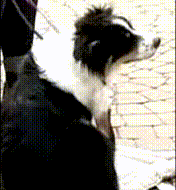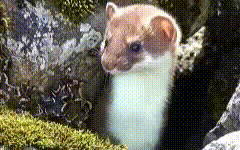DISPLACEMENT BEHAVIOUR IN HUMANS
Other animals repeat instinctive behaviour. Instinctive behaviour generally repeats without any noticeable change over generations. It repeats constantly.
Humans repeat learnt behaviour and ideas. The more we learn, the more we need to learn. To learn and remember we need to focus. The more we focus, the more we need to focus.
Displacement
Displacement activity is a behavioural illness which animals often suffer when they feel stress or insecure. They compensate with habitual, but inappropriate, sometimes self-destructive, activities. Hens scratch and peck at nothing just because they feel nervous and insecure; dogs and cats clean themselves when they are confused or want feeding. Any habitual activity can be displaced.
Hens scratch and peck at nothing just because they feel nervous and insecure; dogs and cats clean themselves when they are confused or want feeding. Any habitual activity can be displaced.
And we have begun to act like birds in captivity with compulsive grooming habits, plucking their own feathers out to such an extent that they can't fly.
Or, overpopulated deer who rub off so much musk on their territorial marker trees that whole rings of bark disintegrate and their territorial trees die.
Humans in the Western world, are collectively displacing. We are in the process of destroying ourselves with an inappropriate habit.
We are overfocusing – overwanting and overdoing.
And in the same way that a dog obsessively scratches himself because he can imagine no better response to his confusion, we hardly notice that we are compulsively focusing – we have no idea that there is any other way of sensing.
But it's not just a physiological displacement like other animals – it's a development specific to humans, a psychological level of displacement.
It's the way we think about our own thoughts and ideas – our abstract understanding – we're overthinking and overabstracting.
Thinking About Thoughts
Most people realise this, we know we're continuously thinking about thoughts. And most people have given up hope of ever stopping it.We can sublimate it for periods of entertainment, and we may succeed in repressing specific ideas, to be replaced by others – but the only sense of satisfaction or relief we know, is to try and do the things we think about, and try to get the things we want.
Focusing first drives us to associate ideas, and then act on at least some of these ideas, to fulfil the sensation of purposeful living.
So, the overthinking goes hand in hand with our material overwanting and overdoing. And we have learnt to recognise this process as progress, having a purpose in life, and normal.
What we recognise as progress, is mostly displacement.
Focusing got things done, and it was fun. It gave us toys and tools. But the more we used it, the more we wanted from it. With our early education we have become more clever and creative than ever before. And, we have slowly become overwhelmed by the exponential repetitions involved in focused learning.
We are not only destroying our environment, but also the individuals we are trying to be, by excessive focusing.
The faster we run, the faster the treadmill turns. Life is too much hard work. It's making the majority of us feeling exhausted and insecure.
Hard work was fine when we could see that the field was now ploughed, or we'd hammered out a wheel. But our modern human psychological work is chaos – only the young can keep pace for a while.
Nature's Cure
Our experience of life is biased. Our understanding is perverted. We are locked in tunnel vision and tunnel behaviour.We are blind to this feeling of inner stillness, this connectedness with the environment which all other animals experience in their everyday lives .
Why are we making life so hard for ourselves?
Without incorporating the pahana mode in our lives it's impossible to develop any balanced, realistic, or wholesome, relationship with life.
The Facts of Life
We need to focus, we need focal points in our life. But all other animals alternate these with pahanal sensing.We've blind-sided the pahanal way of sensing – we can't use it to build anything or get anywhere, it plays no part in the mini trauma circle which is the modern 'me' – and it plays no part in our present herd mentality... it's out of fashion. You probably never thought about it before, and – except for the horizontal peripheries when driving to alert you to something you may need to focus on – have never tried using it.
Pahanal sensing is the natural counterbalance to focusing, and the easiest, quickest, and most effective cure for overfocusing and displacement.
Pahanal sensing stops us focusing, and because we stop focusing we stop thinking and wanting for a moment. And because we stop wanting and thinking, the wheels which are racing us towards insanity stop as well.
To enjoy purpose and action conjusive to wholesome living, we must balance our focused activity with periods of pahanal awareness – on the lookout, waiting for everything but nothing in particular.
Every other animal can stop focusing at will, and they do it easily and naturally. It's how all other animals survive and have survived.
Every few minutes every other animal interrupts whatever they are focusing on, they stop still and silent for a moment and use their pahanal senses.
At those times, animals can't even start to question anything, because they have to concentrate on being alert, and ready to react immediately without a moments' thought.
 Five seconds temporarily breaks the habitual focusing. And this five seconds is all they need to reassure themselves that their lives are safe.
Five seconds temporarily breaks the habitual focusing. And this five seconds is all they need to reassure themselves that their lives are safe.
We humans are only conscious of our need for identity and a purpose in life; we think that this will satisfy us and even make us happy.
We must stop the relentless repetitions governing our lives. Otherwise all we are doing is satisfying our preconditioning. Keeping our learnt preconditioned wheels running securely in their habitual ruts – but never feeling truly safe or whole.
Animals fear for their mortal safety, as we should for our psychological safety.
Pahanal awareness makes focused activity safe and effective.
Please continue with The Involuntary Egoist
Back to Chapter Three : Civilisation's Habitual Ruts
Back to THE PANORAMA SENSES Priority Pages